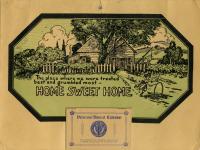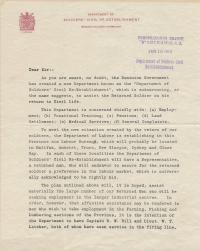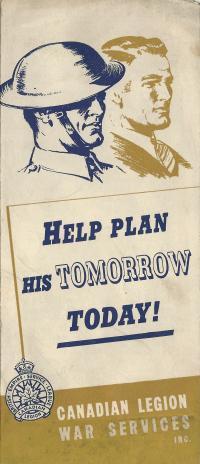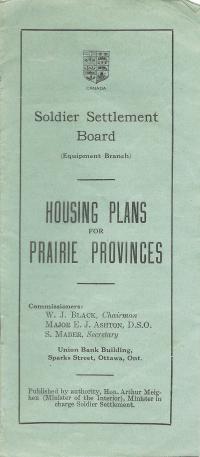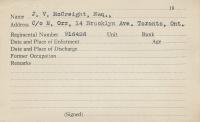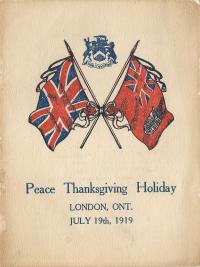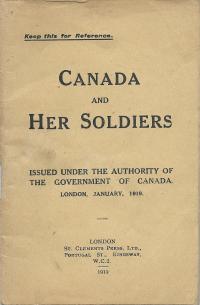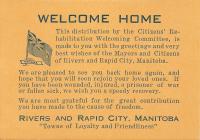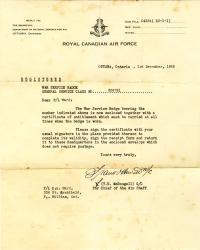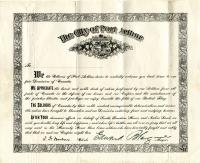Returning
Home Sweet Home
An idyllic image of home, the kind that sustained Canadians in uniform through the long years of war.
Finding work for ex-soldiers
At the end of the First World War, the Canadian government faced an unprecedented problem with the return of tens of thousands of ex-soldiers who would be looking for work. It relied on local officials for appraisals of the job market in various areas.
Preparing for the "Cease Fire"
In 1940, the Canadian Legion War Services launched a fund-raising drive to support the educational and social work it was doing with men in uniform, to help prepare them for the day when they would return to civilian jobs.
Standardized houses for soldier-settlers
This pamphlet provided plans for four standardized houses, each of which cost under $800 and could be built within eight days. In drawing up the plans, the Soldier Settlement Board's architect consulted "a number of leading Pioneer Women in the West."
Veterans in need
The Soldiers' Aid Commission of Ontario, like similar groups established in other provinces during the First World War, was established to provide vocational, financial, and medical assistance to ex-soldiers and their families. Barrie native John McCreight never returned this registration card, so presumably at the time he was not in need of assistance.
Peace Day in London
The signing of the Treaty of Versailles in 1919 marked the end of the First World War, and people in many Allied countries celebrated the event by observing Peace Day in July 1919.
"Our pride in the past, our hope for the future"
Despite its title, this book was all about government programs available to Canadians after they stopped being soldiers and returned to the peacetime economy.
Welcome home to Manitoba
Tokens like this card were common after the First World War, but less so after the Second. It is also unusual in mentioning returning prisoners of war and those who had fallen sick.
Legitimate veterans
Because of problem of unscrupulous individuals claiming veteran status, anyone wearing a War Service Badge after the Second World War also had to carry proof that they were entitled to wear it.
Welcome back to the lakehead
The city of Port Arthur, Ontario, distributed scrolls to returning soldiers in 1919, to thank them for their efforts in defence of "Truth, Freedom, Home, and Native Land."

